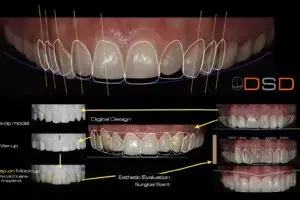Maintaining optimal dental health goes beyond regular brushing and flossing. The tools you use play a significant role in ensuring your teeth and gums remain healthy and free from common dental issues. Selecting the right oral hygiene tools can enhance your daily routine, making it more effective and enjoyable. In this guide, we’ll explore various oral hygiene tools, their benefits, and how to choose the best ones for your needs.
Electric vs. Manual Toothbrushes: Which is Best for You?
Choosing between an electric and a manual toothbrush can be challenging, given the numerous options available. Both types have their advantages, and the best choice depends on your personal preferences and dental needs.
Electric Toothbrushes
Electric toothbrushes are designed to make brushing more efficient. They often come with features like built-in timers, pressure sensors, and multiple brushing modes. Studies have shown that electric toothbrushes can remove up to 21% more plaque and reduce gingivitis by 11% compared to manual toothbrushes. These toothbrushes are especially beneficial for individuals with limited dexterity or those who struggle with maintaining proper brushing techniques.
Manual Toothbrushes
Manual toothbrushes are more affordable and widely accessible. They come in various shapes, sizes, and bristle types, allowing you to choose one that feels comfortable in your hand and suits your brushing style. While they require more effort and technique to achieve the same level of plaque removal as electric toothbrushes, a well-used manual toothbrush can be just as effective in maintaining dental health.
Choosing the Right Mouthwash: Benefits and Types
Mouthwash is a valuable addition to your oral hygiene routine, offering benefits that go beyond what brushing and flossing alone can achieve. Selecting the right mouthwash depends on your specific oral health needs.
Types of Mouthwash
- Cosmetic Mouthwash: Primarily used to freshen breath, cosmetic mouthwash contains ingredients like alcohol or menthol that mask bad odors but do not address the underlying causes.
- Therapeutic Mouthwash: These mouthwashes contain active ingredients such as fluoride, chlorhexidine, or essential oils that help reduce plaque, gingivitis, and cavities. They provide both cosmetic and health benefits.
- Natural Mouthwash: For those seeking a chemical-free option, natural mouthwashes use ingredients like aloe vera, tea tree oil, and baking soda to cleanse the mouth without harsh chemicals.
Benefits of Using Mouthwash
Using mouthwash can help:
- Freshen Breath: Eliminate bad odors caused by bacteria.
- Reduce Plaque and Gingivitis: Therapeutic mouthwashes contain antibacterial agents that fight plaque buildup and inflammation of the gums.
- Strengthen Enamel: Fluoride in mouthwash helps remineralise and strengthen tooth enamel, preventing decay.

Water Flossers vs. Traditional Flossing: Pros and Cons
Flossing is essential for removing plaque and food particles between teeth, but the method you choose can impact its effectiveness and ease.
Traditional Flossing
Traditional flossing involves using a thin strand of floss to manually clean between each tooth. It is highly effective when done correctly and can reach tight spaces that water flossers might miss. However, it requires proper technique and can be time-consuming, making it challenging for some individuals to maintain consistently.
Water Flossers
Water flossers use a stream of water to remove debris and plaque between teeth and below the gumline. They are easier to use, especially for people with braces, implants, or other dental appliances. Studies have shown that water flossers can reduce bleeding and gingivitis more effectively than traditional flossing in some cases. However, they may not remove plaque as thoroughly as manual floss in tight spaces.
The Importance of Tongue Cleaners in Oral Hygiene
Cleaning your tongue is an often-overlooked step in oral hygiene, but it plays a crucial role in maintaining a healthy mouth.
Why Clean Your Tongue?
The tongue harbors bacteria, food particles, and dead cells that can contribute to bad breath and plaque buildup. Using a tongue cleaner helps remove these residues, leading to fresher breath and a cleaner mouth. Additionally, cleaning the tongue can enhance your taste sensation by removing the film that can dull taste buds.
Types of Tongue Cleaners
- Plastic Tongue Scrapers: Flexible and easy to use, these scrapers are effective at removing debris from the surface of the tongue.
- Metal Tongue Scrapers: Durable and often more effective at removing stubborn residues, metal scrapers can be a long-lasting option.
- Tongue Brushes: Similar to toothbrushes, tongue brushes have soft bristles that gently clean the tongue’s surface.
Dental Picks and Interdental Brushes: Effective Tools for Cleaning Between Teeth
In addition to traditional flossing and water flossers, dental picks and interdental brushes offer alternative methods for maintaining clean spaces between teeth.
Dental Picks
Dental picks are small tools designed to reach between teeth and remove food particles and plaque. They are portable and easy to use, making them a convenient option for quick cleanups. However, they can be abrasive if used too aggressively, potentially damaging the gums or tooth enamel.
Interdental Brushes
Interdental brushes are small, cone-shaped brushes that fit between teeth to remove plaque and debris. They come in various sizes to accommodate different gaps between teeth. Interdental brushes are particularly effective for individuals with wider spaces between teeth, braces, or implants. They are gentle on the gums and can be more effective than dental picks in removing plaque.
Conclusion
Choosing the right oral hygiene tools is essential for maintaining optimal dental health. Whether you prefer an electric or manual toothbrush, incorporating mouthwash, using water flossers or traditional flossing, cleaning your tongue, or utilising dental picks and interdental brushes, each tool offers unique benefits tailored to your needs. By selecting the appropriate tools and using them correctly, you can enhance your daily oral care routine, prevent common dental issues, and achieve a brighter, healthier smile.
For personalised recommendations on the best oral hygiene tools for your specific needs, consult with a leading dentist. They can provide expert advice and help you develop a comprehensive oral care plan that ensures long-term dental health.


